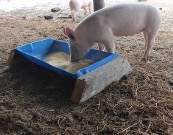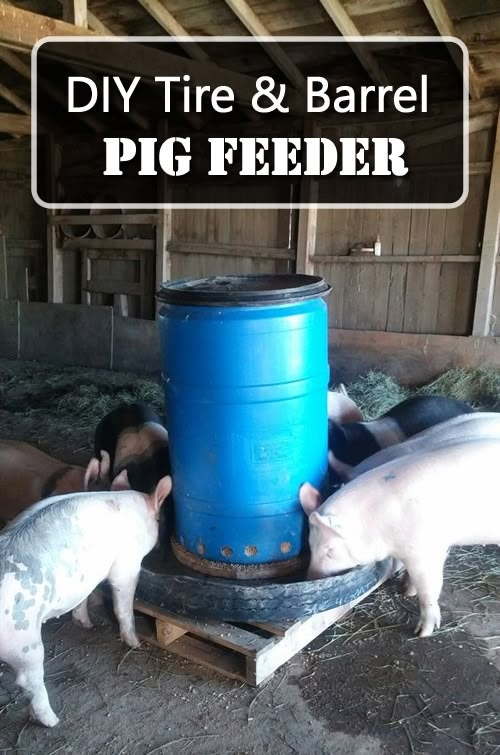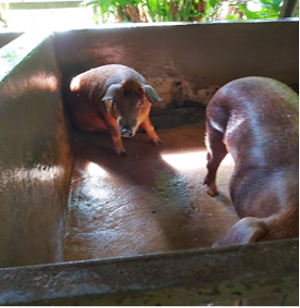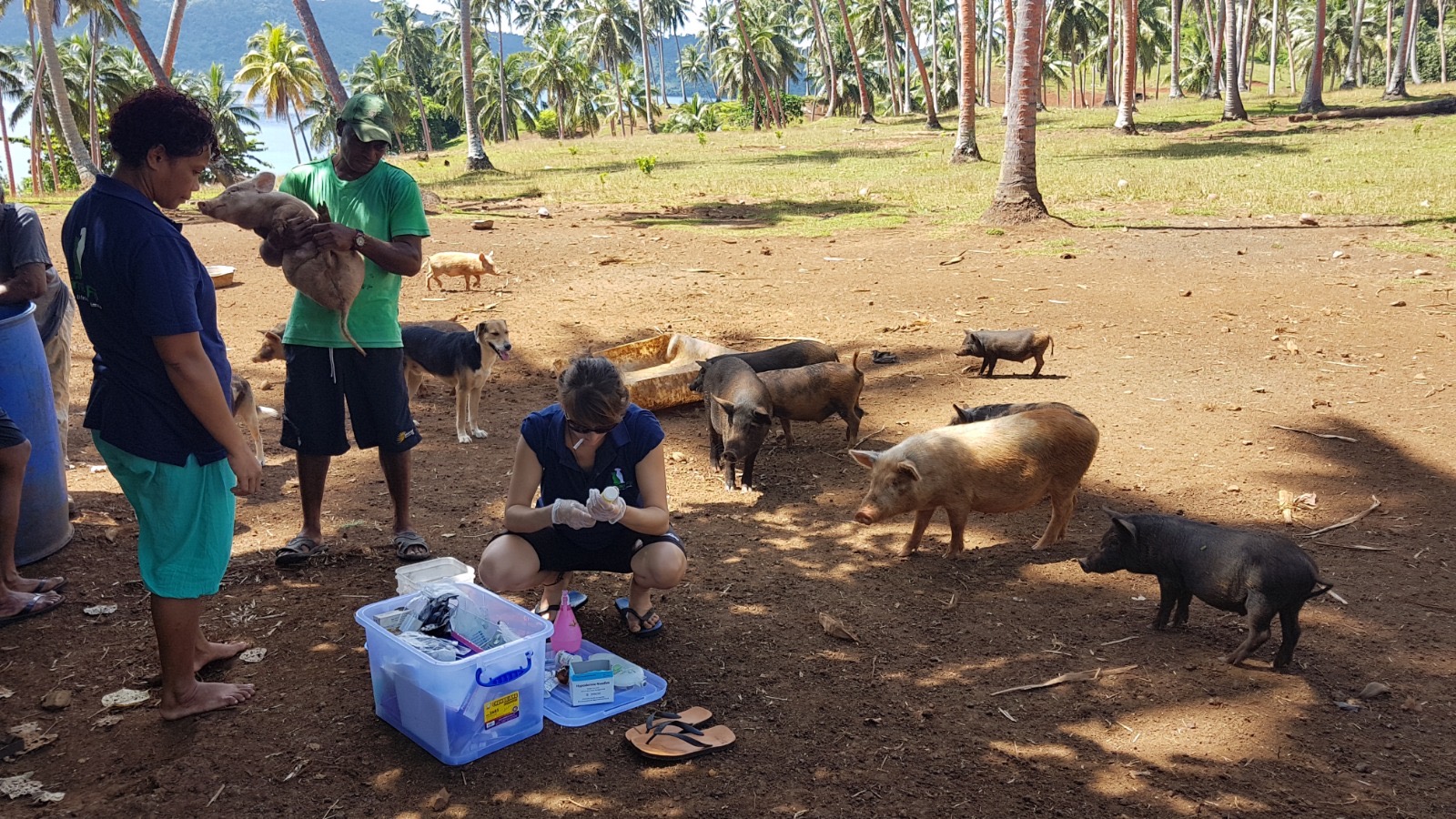Backyard pig farming is becoming increasingly popular in local and rural communities in Fiji and beyond, providing families with food security and additional income.
Housing
It is important to decide how you want to house your pigs. You can allow them to free roam or keep them in pens. If you choose to allow your pigs to free roam, they can be kept in open areas that have boundaries to stop them from escaping. If you choose to tether pigs in a field, ensure the rope is long enough to allow movement and grazing while keeping them safely away from roads and hazards. They should also have access to shelter such as trees while tied up during the day. The pigs should also always be able to reach fresh water. It is common in Fiji to house their pigs in pens made out of wooden walls and iron roofing with soil or concrete floors.
The pigs should always have access to shelter, fresh water and food. Some people prefer to use banana leaves or something similar to provide some shelter while still giving lots of fresh air to the pens. You can use coconuts husks on mud or sand as bedding but they can get very dirty very easily. Placing bedding on concrete slabs instead can make cleaning easier and help maintain better hygiene in the pen. Pigs love being together and snuggling up to sleep, but they should still have enough room in the pen to walk around. This means that there should also be some distance between their food and water from their toileting area!


Hygiene
Keeping pigs clean is essential for their health, well-being, and growth. To prevent disease and bad odors, pig pens should be cleaned daily by removing manure and leftover food. Water containers and feeding troughs should be washed weekly, and the entire pen should be scrubbed and disinfected at least once a month. Pigs should have a separate, clean area away from their toilet to eat, such as a clean feeding trough, to prevent contamination from bacteria found in their waste.
Good drainage and proper ventilation help keep the area dry, reducing bacteria buildup and preventing pests like rats and flies. Providing fresh bedding, such as dry grass or sawdust, improves both hygiene and comfort. A well-maintained and clean environment leads to healthier pigs, better productivity, and a more successful pig-rearing experience.

Pig pen with no food or water
Food
What should you be feeding your pig to grow healthy and strong? A pig’s diet depends on its age, breed, and condition—for example, pregnant sows require different nutrients than growing piglets.. Pigs need a varied diet with:
- grains,
- protein,
- fruit and
They can’t survive with only food scraps and pasture. For grains you can feed them: Corn, cassava, kumala , wheat, barley, maize, lupins, and meal mix from the shop. If possible, cook, crush or soak grains for better digestion. As for their protein sources they do best with fishmeal, soybean meal, or meat meal. You can also give coconut meal, and legumes, like pigeon peas or mung beans.
Large breeds, like Large White and Landrace, require higher protein intake than smaller breeds, like Berkshire. Some good fruits and vegetables for pigs are pumpkin, taro leaves, banana stems, breadfruit, papaya, and leafy greens. These should supplement the diet, but would not be their main feed. If available, you can give manufactured pig feeds instead that are already balanced and make feeding easier. Avoid feeding your pig swill (food scraps with meat, dairy, or contaminated waste) – due to the risk of spreading diseases like African Swine Fever. Don’t feed moldy or spoiled food either as it can make pigs sick. Too much fruit can cause weight gain and health issues.
Important Tips
- Piglets need high protein and energy to grow. Adult pigs require less.
- Pigs kept outside in hot or cold weather may need extra food for energy.
- Cheap, low-quality grains may lack nutrition, so be careful when selecting feed.
- Feeding in the morning and evening works best.
A well-fed pig is a healthy pig, whether for farming or as a pet!
Diseases
Although indigenous pig breeds are well-adapted to Fiji’s humid climate, they are still vulnerable to parasites and other health issues. Parasites can be spread by bad hygiene where they eat, drink, toilet and sleep if they aren't cleaned often. Roundworms and tapeworms, for example, can cause the pig to have a bloated belly and diarrhoea. This can be avoided by deworming your pigs every 3 months! If you see other signs such as coughing, sneezing or itchy skin, please make an appointment with your veterinarian.

Pig farm visit by Animals Fiji
Animals Fiji welcomes any sick animals and are more than happy to get your pig feeling better again. If you want to support Animals Fiji in their work or to find out more about Animals Fiji's services, contact their Savusavu Clinic (+679) 998 6253 or Nadi Clinic (+679) 993 6647 or visit their website at www.animalsfiji.org. We are here anytime to chat about starting your own pig family!